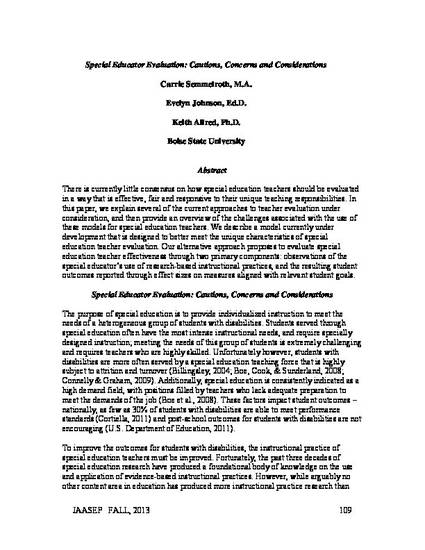
There is currently little consensus on how special education teachers should be evaluated in a way that is effective, fair and responsive to their unique teaching responsibilities. In this paper, we explain several of the current approaches to teacher evaluation under consideration, and then provide an overview of the challenges associated with the use of these models for special education teachers. We describe a model currently under development that is designed to better meet the unique characteristics of special education teacher evaluation. Our alternative approach proposes to evaluate special education teacher effectiveness through two primary components: observations of the special educator’s use of research-based instructional practices, and the resulting student outcomes reported through effect sizes on measures aligned with relevant student goals.
This document was originally published by American Academy of Special Education Professionals in Journal of American Academy of Special Education Professionals. Copyright restrictions may apply.
